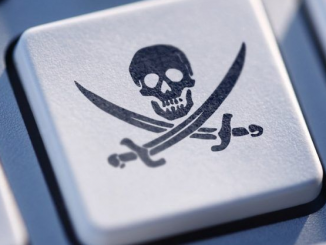
Internet subscribers who are caught downloading pirated content have no constitutional right to Internet access, BMG says. The music rights group is countering a defense ISP Cox Communications submitted to the Supreme Court, arguing that the cited ruling doesn’t apply here.
Last week ISP Cox Communications told the Supreme Court that pirating subscribers should not be disconnected from the Internet.
The Internet provider found support for this claim in the recent Packingham v. North Carolina decision, where the highest court ruled that it’s unconstitutional to bar convicted sex offenders from social media.
If convicted sex offenders still have the right to use social media, accused pirates should not be disconnected from the Internet on a whim, Cox argued. Especially, if these piracy allegations are solely based on copyright holder complaints.
The argument is part of Cox’s appeal in its case against music rights group BMG. In 2015 the ISP was ordered to pay $25 million in damages, after it was found guilty of willful contributory copyright infringement for refusing to disconnect alleged pirates.
Cox presented the new evidence to strengthen its appeal, but according to a new filing just submitted by BMG’s lawyers, the argument is irrelevant.
“The First Amendment does not guarantee Cox’s subscribers the right to use Cox’s internet service to steal music any more than it prevents Cox from terminating subscribers who violate Cox’s policies or fail to pay their bills,” they argue.
The music rights group notes that the Packingham ruling doesn’t apply to “specific criminal acts.” The copyright infringements reported by BMG were specific and targeted at individual accounts, so these would warrant an account termination.
“Just as criminalizing the use of Facebook for sexual exploitation does not violate the First Amendment, the civil law of copyright liability may incentivize ISPs to terminate those subscribers who repeatedly use their service to infringe,” BMG explains.
The question remains, of course, whether alleged infringements can be classified as specific acts. One of Cox’s main objections has been that they don’t want to disconnect an entire household from the Internet, based on rightsholder complaints alone. In part, because it’s unknown who committed the act.
BMG is convinced that the Packingham order doesn’t change the standing verdict. It says nothing about repeat copyright infringers, and the company doesn’t believe that account terminations violate the First Amendment rights of accused pirates.
“Infringers do not have First Amendment right to use Cox’s internet service to commit crimes, and Packingham does not hold otherwise,” BMG concludes.
It is now up to the Supreme Court to review the evidence and determine its applicability in the current case. No matter what the outcome, the case is likely to have a massive impact on how ISPs treat repeat infringers going forward.
Source: ![]() TorrentFreak.com
TorrentFreak.com






Be the first to comment